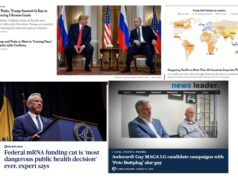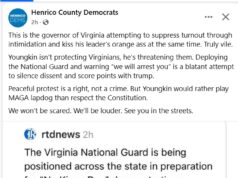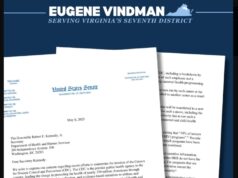In a strong post-election piece titled “Farewell, America,” on billmoyers.com, Neil Gabler wrote this:
If there is a single sentence that characterizes the election, it is this: “He says the things I’m thinking.” That may be what is so terrifying. Who knew that so many tens of millions of white Americans were thinking unconscionable things about their fellow Americans? Who knew that tens of millions of white men felt so emasculated by women and challenged by minorities? Who knew that after years of seeming progress on race and gender, tens of millions of white Americans lived in seething resentment, waiting for a demagogue to arrive who would legitimize their worst selves and channel them into political power? Perhaps we had been living in a fool’s paradise. Now we aren’t.
In some ways, this election does reveal something that had been hidden. “Who knew…?” A kind of darkness has been gathering for a while that Trump’s campaign and now his election have made more visible.
But it would be a mistake to imagine that what has now been revealed — all these “”hatreds [that] lurked under the thinnest veneer of civility” — was always there, but only hidden. Just as it is important to recognize how powerful are the forces of darkness in today’s America, so also is it essential that we understand how today’s America has grown darker than the America many of us have long known.
That the balance of power between good and evil in a civilized society can shift — for better or for worse — was the point of the piece I chose a year ago as the one piece intended to draw readers to my then newly-published book, WHAT WE’RE UP AGAINST: The Destructive Force at Work in Our World– and How We Can Defeat It.
The piece bore the title, “Cry The Benighted Country: What’s Gone Wrong in America.” And I’d like to present it again here.
Understanding how things change helps put Gabler’s “Who knew?” in perspective. And understanding the dynamics that have led to this deterioration might help illuminate what it will take to climb back out of this dark pit into which Trump’s election has plunged us.
****************************************
Cry the Benighted Country: What’s Gone Wrong in America
“Make America great again,” Trump says. Not a bad idea, but first we need to understand what’s gone wrong.
In every society, both constructive and destructive forces are always at work. But the balance of power between those forces is not constant. Such factors as the quality of its leadership and the impact of its national experience can strengthen either the best or the worst in a society.
Consider, for example, the peoples of Great Britain and Germany at two points in the twentieth century.
In 1910, a time of relative stability before the outbreak of World War I, British society and culture might have been judged moderately healthier than the German — as a result of a somewhat more orderly history over the previous several centuries and of the more democratic structure of power in Britain. But the difference between them was not dramatic.
Thirty years later, the balance of power between the forces of light and darkness in the two nations had become starkly different. In Britain, the words of a new leader, Winston Churchill, summoned forth the best in the British people — their courage and their commitment to defend humane values.
In Germany, against which those values then needed to be defended, the leadership of Adolf Hitler was bringing forth the worst elements of German culture. While Churchill was inspiring the heroics in his people (in “their finest hour”), Hitler was turning many of his people into moral monsters — his “willing executioners.”
Many of us in America today sense an adverse shift in the balance of power between the elements that have made our nation great, and those that tear down what’s best about our nation. Some dimensions of this shift can be seen in three key elements of the American body politic.
First, Liberal America: taken as a whole, does it convey its values in an inspiring way? If one compares what we have heard from recent Democratic leaders with the words FDR spoke to the nation — words captured in his great 1940 “I see an America” speech, and those engraved in the granite of the FDR memorial in Washington — the change seems unmistakable. The moral and spiritual passion has largely been drained from Liberal America, weakening the power of its values to shape our society.
(The Pope’s recent speech to Congress provides another demonstration of how liberal values — compassionate concern for the well-being of all, and cooperation for the common good — can be articulated with power and resonance.)
When it comes to the political right, who among us — not captive inside its propaganda bubble — can fail to see what a destructive force has taken over the once-honorable Republican Party?
One would be hard put to find, from the past 15 years, instances of that party’s actions that have improved rather than damaged America. Among the hundreds of talking points that Republicans have injected into our national conversation, one would also be hard put to find many that have been more truthful than deceptive.
It is here we have paid the greatest price for Liberal America’s loss of moral and spiritual passion. The response from the liberal quarter to the rise of this destructive force on the right has been woefully inadequate.
This combination of the destructiveness of the right and the weakness of the left has resulted in one of the most profound crises in American history. It is a time when, as the poet Yeats said, “the best lack all conviction, while the worst / are filled with a passionate intensity.” A time when, as a result, the lie has too often defeated the truth.
This bring us to the press, whose essential job is to tell us the truths we need to know in order to function as competent citizens.
For more than a decade, we have been living through of one of the most politically dangerous periods in American history:
- An extraordinary presidential assault on the rule of law (2001-09), including the torture memos, which provide a template any future president can use to break any law with impunity;
- A massive transfer of power from the people to Big Money, aided by Supreme Court justices willing to sweep away precedent and contort the Constitution to bolster the power of the corporate system;
- The deliberate sabotage of the government for political advantage by the opposition party, which refuses to do the people’s business in a determined campaign to obstruct the president, resulting in the least productive Congresses of modern times;
- The crippling of the nation’s ability to respond to the greatest challenge humankind has ever faced — climate disruption — by those who refuse to heed the most urgent warnings ever issued by the scientific community.
All these unprecedented and degraded political developments are manifestations of the same coherent, destructive force damaging the nation.
Yet much of the press on which our citizens rely for their understanding of events, has hardly noted how extraordinary and dangerous these times are. The unprecedented has been treated as normal, the scandalous as acceptable.
It was not always thus in America. Our nation was once a beacon to the world, and could be again — but only if we can recognize, understand, and reverse the shift in the balance between the constructive and destructive forces at work in our nation.
******************************************
In other words, it is indeed disturbing that a big enough portion of the American electorate voted for a liar, con man, bigot, misogynist, narcissist like Trump to make him president.
But it is only recently that a force of brokenness has so magnified the worst elements in the American consciousness that such an ugly choice by the electorate became a possibility.














